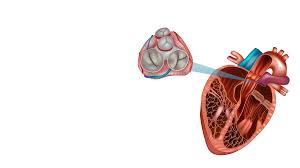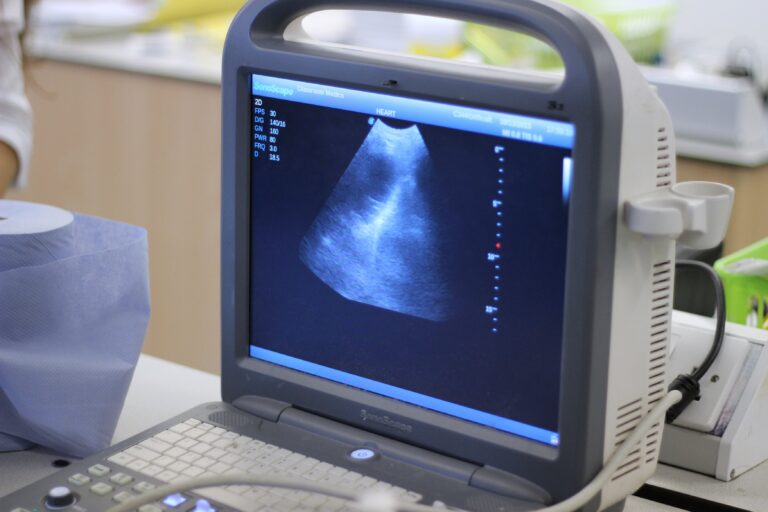Heart disease is the leading cause of death for women around the world. But while many people think of heart attacks as sudden and dramatic events—like someone clutching their chest and collapsing—the symptoms in women can be much more subtle. In fact, many women don’t even realize they’re having a heart attack until it’s too late.
This article will help you understand the unique warning signs of a heart attack in women, why those signs are different from men’s, and what to do if you or someone you know may be experiencing one. Knowing what to look for could save a life—including your own.
Why Are Heart Attack Symptoms Different in Women?
Heart attacks occur when blood flow to the heart is blocked, usually by a clot in one of the coronary arteries. This can cause damage to the heart muscle and may be fatal if not treated quickly.
While men and women both experience heart attacks, the symptoms can be quite different. This is because women’s bodies—and their hearts—are different in how they respond to blockages. Women often experience symptoms that are less obvious and may not involve chest pain at all.
In many cases, women dismiss their symptoms as something minor—like stress, fatigue, or indigestion. This delay in recognizing the signs can be dangerous.
Common Warning Signs of a Heart Attack in Women
Here are some of the most common symptoms women may experience during a heart attack. You don’t have to have all of them, and not all will seem serious at first, but if any of these symptoms appear suddenly or feel unusual, it’s time to seek medical help right away.
1. Unusual Fatigue
Feeling extremely tired even after getting enough sleep? Sudden or long-term fatigue is one of the most overlooked signs. If you find yourself unable to carry out routine tasks like walking or climbing stairs due to exhaustion, it could be a warning.
2. Shortness of Breath
You might feel like you can’t catch your breath even without any physical exertion. Some women experience this symptom while lying down or trying to sleep.
3. Chest Discomfort
This may or may not feel like the classic “crushing chest pain.” Women often describe it as pressure, tightness, or a feeling of fullness in the center or left side of the chest. It can last a few minutes or go away and come back.
4. Pain in the Neck, Jaw, Shoulder, Upper Back, or Arms
Instead of chest pain, women are more likely to feel pain or discomfort in other areas like the neck or jaw. It might feel like a muscle strain or soreness that comes and goes. Shoulder and arm pain, especially on the left side, can also be a red flag.
5. Nausea or Vomiting
Women may feel sick to their stomach or even vomit during a heart attack. These symptoms are sometimes mistaken for the flu or food poisoning.
6. Lightheadedness or Dizziness
Feeling faint, dizzy, or weak can be a sign that your heart isn’t pumping blood properly.
7. Cold Sweats
Breaking out in a sudden cold sweat, especially when you’re not physically active or in a hot environment, may indicate a heart problem.
8. Anxiety or a Sense of Doom
Some women describe a sudden sense of unease, panic, or feeling like something is very wrong. Trust your instincts if this happens.
How Women Can Protect Their Heart Health
Heart attack symptoms in women can be subtle—but they are serious. Taking steps to care for your heart can help lower your risk and improve your overall well-being.
Here’s what you can do:
- Know your numbers: Keep track of your blood pressure, cholesterol, blood sugar, and BMI.
- Eat heart-healthy foods: Include fruits, vegetables, lean proteins, whole grains, and healthy fats.
- Exercise regularly: Aim for at least 30 minutes of moderate activity most days.
- Quit smoking: Smoking increases your risk of heart disease significantly.
- Manage stress: Chronic stress can damage your heart. Practice relaxation techniques like yoga, meditation, or breathing exercises.
- Get regular checkups: Regular doctor visits can catch warning signs early.
Why Many Women Ignore the Signs
Women often put their families and careers ahead of their own health. They may ignore warning signs, hoping they’ll go away, or attribute symptoms to stress or aging. Some even feel embarrassed to go to the emergency room and find out it’s “nothing.”
But ignoring the signs can be fatal. It’s better to be safe than sorry. If something feels “off,” don’t wait—get checked.
What to Do in an Emergency
If you think you or someone else may be having a heart attack, don’t wait.
Call emergency services immediately (e.g., 911).
Chew an aspirin if advised and help the person stay calm and seated.
Don’t drive yourself to the hospital—call for help. Every minute counts.
Conclusion
Heart attacks in women often don’t look like they do in the movies. The symptoms can be silent, strange, or just plain easy to miss. That’s why it’s so important for women to listen to their bodies and not brush off unusual symptoms.
Understanding the early warning signs—and acting on them—can save your life or the life of someone you love. Don’t let fear or uncertainty stop you from getting help. Know the signs, trust yourself, and protect your heart.
Frequently Asked Questions (FAQs)
1. Are heart attack symptoms in women always different from men?
Not always, but women are more likely to have symptoms like fatigue, shortness of breath, and jaw pain instead of the classic chest pain. Both men and women can experience any heart attack symptom.
2. Can young women have heart attacks?
Yes. Although the risk increases with age, younger women—especially those with risk factors like smoking, obesity, high blood pressure, or diabetes—can have heart attacks too.
3. How do I know if my fatigue is a sign of a heart problem?
If you’re unusually tired for no clear reason, especially if it’s sudden or interferes with your daily activities, it’s worth getting checked. Fatigue alone isn’t always serious, but when paired with other symptoms, it could be a red flag.
4. Can stress cause heart attacks in women?
Yes. Chronic stress can increase blood pressure, raise cholesterol levels, and lead to unhealthy habits—all of which raise the risk of heart attack. Stress-induced heart conditions like “broken heart syndrome” can also mimic heart attacks.
5. What tests are used to diagnose a heart attack?
Doctors may use an electrocardiogram (ECG), blood tests (like troponin levels), echocardiograms, and angiograms to determine if a heart attack has occurred and assess the extent of the damage.



